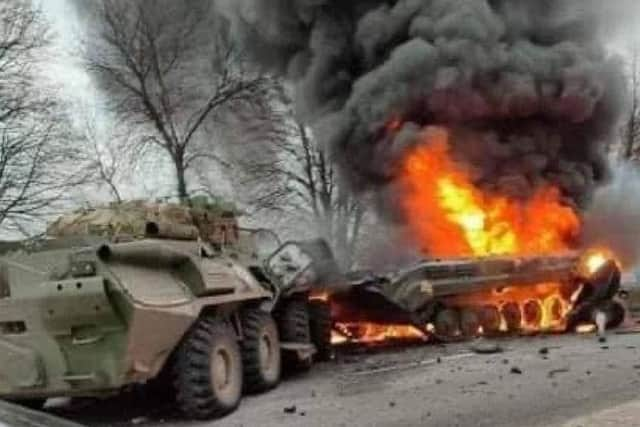Invasion drives global supply disruption
and live on Freeview channel 276
Ukrainian port operations have been suspended by the military with reports that at least one port has been damaged by Russian shelling.
The full extent of the damage to port and transport infrastructure is yet to be known, but no doubt it will take considerable time to restore and rebuild what has been destroyed. There is uncertainty around how long the war will last, and ports will remain closed until stability has been restored. The major trading and logistics companies have closed their Ukrainian operations and world trade is suffering major disruption as supply chains try to rebalance in response to altered supply and increased demand.
Advertisement
Advertisement
There is also a risk that the shipping pool will tighten considerably as a result of the recent decision to ban Russian vessels from all UK ports. This could further exacerbate the logistical challenges of accessing products from other markets such as Europe, creating even more uncertainty in the coming weeks, and is likely to affect all commodities.


Often described as the ‘breadbasket’ of Europe, Ukraine is one of the world’s largest exporters of grains and taken together, Russia and Ukraine account for nearly 30% of global wheat exports. It is a major supplier of maize to the European market and at this time of the year the Black Sea region would be the origin of choice for Northern Ireland importers because the Canadian Lakes are closed and the Brazilian Safrinha crop is still six months away. Local traders face major challenges as they strive to secure alternative supplies from a much-reduced global pool at the time of peak seasonal demand for feedstuffs.
The longer-term risk is the potential for spring planting to be disrupted due to difficulties procuring labour, fertiliser, fuel and finance - leading to further supply and demand challenges going forward as well as extreme price volatility.
Russia is the second largest producer of natural gas globally and the biggest supplier to Europe via pipelines that cross Ukraine. The fertiliser market is heavily reliant on natural gas for production and the strengthening energy markets are suggesting that fertiliser prices are unlikely to ease anytime soon.
Advertisement
Advertisement
Russia is also one of the world’s leading producers and exporters of the three main fertiliser nutrients – nitrogen (N), phosphate (P) and potash (K), owing to its substantial phosphate rock, potash and natural gas reserves. Last month, Russia imposed a two-month ban on ammonium nitrate exports and the recent sanctions imposed by the UK and Europe against Russian suppliers and vessels will lead to further shortfalls in product supply. Global fertiliser supplies are already tight which could have knock-on effects for crop yields worldwide.
The conflict is likely to lead to a legacy of logistical challenges even after the war is over – adding to the ongoing impact of the covid-19 pandemic. Never before has the interconnectedness of the world and global supply chains been so apparent and it is difficult to recall another time when we were at the mercy of so many significant external factors beyond our control.
Above all, the humanitarian tragedy currently unfolding in Ukraine is at the forefront of all our minds and our thoughts are very much with the Ukrainian people right now. We truly hope that a swift and peaceful resolution can be found for their sake most of all.